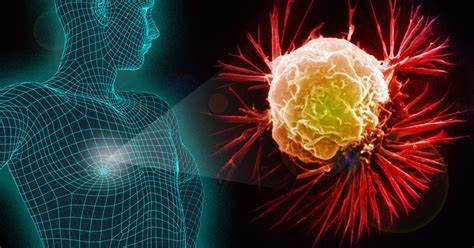Sirnaomics Completes Phase I Clinical Study of STP707 for Pancreatic Cancer with Strong Safety Profile and Promising Disease Stability
01 July 2024 | Monday | News

Image Source : Public Domain
Sirnaomics , a leading biopharmaceutical company engaging in discovery and development of advanced RNAi therapeutics, today announced that the Group has completed STP707 Phase I clinical study with strong safety profile and stable disease activity for treatment of pancreatic cancer patients. This is a dose escalation study conducted in 11 oncology clinics in the U.S. The study involved six cohorts, consisting of 50 patients with various cancers, of which 11 had pancreatic cancer.
In an earlier news release from the Company in August 2023, the Group noted completion of all dosing regimens for its Phase I study of STP707 for the treatment of multiple solid tumors. This basket study has enrolled patients suffering from various types of late-stage cancers and failing after multiple rounds of treatments. The study is to evaluate the safety, tolerability and anti-tumor activity of the Group's siRNA (small interfering RNA) drug candidate, STP707, through intravenous infusion (IV) with six cohorts of escalating doses. Patients including pancreatic, colorectal, liver, melanoma and other cancers, with advanced/ metastatic or surgically unresectable solid tumors, refractory to standard therapy, were recruited. Six dose levels (3mg, 6mg, 12mg, 24mg, 36mg and 48mg) were explored in ascending doses. Patients received IV infusion on Day 1, 8, 15 and 22 of a 28-days cycle.
11 pancreatic patients (five males and six females, average age 64 years) were enrolled in the study. Patients were heavily pre-treated and received, on average, three lines of therapy prior to enrollment in the study (including Gemcitabine, Paclitaxel and Folfirinox). The preliminary results indicated that the mean treatment cycles completed was three cycles (average 12 doses). The average days for stable disease for all 11 patients with STP707 treatment was 92 days, while 31 days for the 12mg group, 65 days for 24mg group and 112 days for 48mg group, including one patient ongoing at 281 days. No treatment related adverse events (TRAE) were reported for the 11 patients, except for one patient with a Grade 2 infusion reaction. Non-treatment related adverse events were secondary to their advanced metastatic disease including intestinal obstruction, abdominal distention, gastrointestinal obstruction, embolism, gastrointestinal hemorrhage, tumor pain, hypoxia and dyspnea.
The maximum tolerated dose of STP707 for all 50 late-stage cancer patients was not reached even at 48mg dosage level. STP707 was very well-tolerated in a heavily pretreated cancer patient population. The 11 pancreatic subset of patients showed low toxicity and relatively long stable disease at various dosages (106, 281 and 302 days), and warrants further study with STP707 alone or in combination with immune check point inhibitors, given the preclinical documented ability of STP707 to recruit T-cells to the tumor microenvironment (TME). This is the first time a polypeptide nanoparticle-based siRNA cancer therapeutic has demonstrated early positive safety and efficacy results for the treatment of late-stage pancreatic cancer patients.
"We are very excited to see STP707, our leading siRNA drug product for the treatment of heavily pre-treated pancreatic cancer (one of the deadliest tumor types), shows these strong results upon intravenous administration. This is a very promising result for RNAibased cancer therapeutics for the treatment of metastasized tumors." said Dr. Patrick Lu, Ph.D., Founder, Chairman of the Board, Executive Director, President and Chief Executive Officer of Sirnaomics. "The strong safety profile, long-lasting stable disease efficacy and dose-dependent antitumor activity of this intravenously administered STP707 formulation, present a potential novel cancer therapeutic, either as a single drug or in combination with immune check point inhibitor drugs."
Most Read
- How Does GLP-1 Work?
- Innovations In Magnetic Resonance Imaging Introduced By United Imaging
- Management of Relapsed/Refractory Multiple Myeloma
- 2025 Drug Approvals, Decoded: What Every Biopharma Leader Needs to Know
- BioPharma Manufacturing Resilience: Lessons From Capacity Expansion and Supply Chain Resets from 2025
- APAC Biopharma Review 2025: Innovation, Investment, and Influence on the Global Stage
- Top 25 Biotech Innovations Redefining Health And Planet In 2025
- How Health Systems Are Reshaping Drug Adoption, Partner Models, and Market Access in 2026
- The New AI Gold Rush: Western Pharma’s Billion-Dollar Bet on Chinese Biotech
- Single-Use Systems Are Rewiring Biopharma Manufacturing
- The State of Biotech and Life Science Jobs in Asia Pacific – 2025
- Asia-Pacific Leads the Charge: Latest Global BioSupplier Technologies of 2025
- Invisible Threats, Visible Risks: How the Nitrosamine Crisis Reshaped Asia’s Pharmaceutical Quality Landscape
Bio Jobs
- Sanofi Turns The Page As Belén Garijo Steps In And Paul Hudson Steps Out
- Global Survey Reveals Nearly 40% of Employees Facing Fertility Challenges Consider Leaving Their Jobs
- BioMed X and AbbVie Begin Global Search for Bold Neuroscience Talent To Decode the Biology of Anhedonia
- Thermo Fisher Expands Bengaluru R&D Centre to Advance Antibody Innovation and Strengthen India’s Life Sciences Ecosystem
- Accord Plasma (Intas Group) Acquires Prothya Biosolutions to Expand Global Plasma Capabilities
- ACG Announces $200 Million Investment to Establish First U.S. Capsule Manufacturing Facility in Atlanta
- AstraZeneca Invests $4.5 Billion to Build Advanced Manufacturing Facility in Virginia, Expanding U.S. Medicine Production
News











